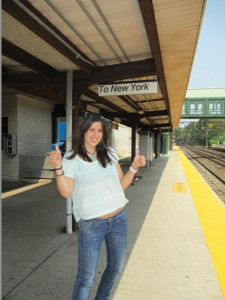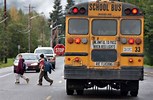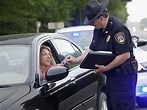2020 Weekend Education Classes

2020 Weekend classes
Important to note:
If the class is remote, Host Families pay for the class and what is included. Au Pairs pay for any transportation, food, & lodging not included in the cost of the class.
There are three main organizations that offer Weekend Classes across the country. You can search these sites to see upcoming offerings across many locations:
- Cultural Hi-ways/ Borough of Manhattan Community college.
https://www.campusce.net/learningacrossamerica/category/category.aspx
They have learning local and learning express options. Classes are focused on history and explorations of locations.
- Au Pair Weekend https://www.aupairclasses.org/registration-calendar
“Single” classes earn 36 hours in one weekend. “Double” classes earn 72 hours over 2 weekends. “Combo” classes earn 72 hours in a single long weekend. Classes are focused on history and exploration of locations.
- Classroom Au Pair https://classroomaupair.org/
Classes mainly offered in NJ/ NY area and Florida. Classes are focused on a range of topics.
The following listings are organized by location in the country to help au pairs control airline costs. It is listed by Northeast, to South, then West options.
Albany, NY College of St. Rose, at Silver Bay http://silverbayaupaircourse.com/
AP chooses subjects, see course descriptions. Lodging and meals are included in the average cost of $340. Each weekend plus homework, provides an au pair with 3 credits.
Brookville, NY Long Island University http://liu.edu/aupair
Weekend classes focusing on one topic. They offer transport from the train station at a certain times. Please see course descriptions. Average class cost of $285 and is based on receiving up to 3 credits. Lodging and meals are not included but can be purchased for $100.
New York City, NY Cultural Hi-Ways/ Borough of Manhattan Community College (BMCC).
http://www.campusce.net/learningacrossamerica/category/category.aspx
Learning Across America. Classes meet on three weekend days spread out for several weeks with a break before the travel portion of the class. Class focus and tour locations include Niagara Falls, NYC, Montreal, Amish Country of PA, Boston, & Washington DC. Au Pairs earn either 32 or 40 hours with attendance for all classes & the tour, and completing the homework assignments. Prices range from $279 – $485 depending on number of classes and tour location. Occasional 72 hour NYC/ Washington DC/ New Orleans classes are offered for $639. See site for details.
New York City, NY UCLA Extension https://www.aupairclasses.org/new-york
Performing Arts (Theater/ Broadway, Music) or Visual Arts (Art Architecture, Photography) class offerings. 36 hours per class, Friday -Sunday for $295 + $110 in fees. 72 hours for both classes for $500 +$215 in fees. covers 3 meals during the weekend, admission to museums, shows, and activities; materials; local transportation) No housing included. See website for full details.
White Plains, NY Pace University www.pace.edu/eli/westchester/j-1-au-pair-student
3 course offerings – American Studies through Film, Cross Cultural Communication, American Humor, Tourism. 20 credit hour class: 9-5 pm Sat & Sun for $200. 40 hour credit class: weekend class & research essay requirement for $365. No housing, but free parking.
Purchase, NY SUNY Purchase www.purchase.edu/ell
Explorations in American Life and Language – courses focused on English language in business and culture classes. Weekend options: 20 hours or 40 hours towards your U.S. government education requirement. No housing available, but short-term parking available.
West Harrison, NY Fordham University www.fordham.edu/aupair
Classes focus on Psychology and Marketing presently. Weekend classes with pre- assignment options for 20 hours ($225) or 40 hours ($375) if research paper is also submitted. Free Parking.
New Rochelle, NY Iona College http://www.iona.edu/Student-Life/Student-Experience-Activities/International-Student-Services/ESL-General-Au-Pair-Program.aspx
2 – 3 class offerings that change with each semester. Each class has a 2 or 3 credit option depending on completing a multipage assignment. 2 credit class costs $240, 3 credit course costs $350. Classes run from 9am – 5:45pm each day. Overnight accommodations may be available, see site for details.
Boston, MA Bunker Hill Community College https://www.aupairclasses.org/boston
2 classes offered – Discover Boston and Make a Difference. Receive up to 45 hours for a 3 day course, $295 + $60 in fees. Up to 90 hours for both classes for $500 + $115 in fees, when you sign up for both at the same time (“Double”). No housing provided, see website for full details.
Fairfield, CT Cultural HiWays/ Borough of Manhattan Community College (BMCC).
http://www.campusce.net/learningacrossamerica/category/category.aspx
Learning Across America. Classes meet on three weekend days spread out for several weeks with a break before the travel portion of the class. Class focus and tour locations include Niagara Falls, NYC, Montreal, Amish Country of PA, Boston, & Washington DC. Au Pairs earn either 32 or 40 hours with attendance for all classes & the tour and completing the homework assignments. Prices range from $279 – $485 depending on number of classes and tour location.
Stamford, CT Cultural HiWays/ Borough of Manhattan Community College (BMCC).
http://www.campusce.net/learningacrossamerica/category/category.aspx
Learning Across America. Classes meet on three weekend days spread out for several weeks with a break before the travel portion of the class. Class focus and tour locations include Niagara Falls, NYC, Montreal, Amish Country of PA, Boston, & Washington DC. Au Pairs earn either 32 or 40 hours with attendance for all classes & the tour and completing the homework assignments. Prices range from $279 – $485 depending on number of classes and tour location.
Jersey City, NJ Hudson County Community College https://classroomaupair.org/
Classes offered include acting, cooking, event planning, English, photography, social media, music, as well as destination offerings in Florida. Pre and Post assignment homework required. 9am – 7pm classes, must attend all hours to get completion certificate. 36 hour/ 3.6 ceu classes from $295 – $345, depending on class. Transit station, street parking, or lot parking available. See site for details.
Morristown, NJ Cultural HiWays/ Borough of Manhattan Community College (BMCC).
http://www.campusce.net/learningacrossamerica/category/category.aspx
Learning Across America. Classes meet on three weekend days spread out for several weeks with a break before the travel portion of the class. Class focus and tour locations include Niagara Falls, NYC, Montreal, Amish Country of PA, Boston, & Washington DC. Au Pairs earn either 32 or 40 hours with attendance for all classes & the tour, and completing the homework assignments. Prices range from $279 – $485 depending on number of classes and tour location.
New Brunswick, NJ Rutger’s University http://www.cpe.rutgers.edu/aupair/
Classes tailored to Au Pairs. Topics include American Food, Childcare topics etc. 8:30-4:30 on Saturday & Sunday. $390 for 3 CEUs, includes materials, breakfast, and lunch. Certificate upon completion. No housing but onsite parking, free shuttle from NJ transit train station. See website for full details.
Philadelphia, PA Peirce College https://www.campusce.net/learningacrossamerica/course/course.aspx?catId=155
Arts and Diversity: A Focus on Philly’s diverse population and art scene with visit to PA Museum of Art and neighborhood murals. $319 for 36 hours. See site for details.
Millersville, PA Millersville University
https://www.millersville.edu/internationalprograms/eli/short-term-english-programs/au-pair-weekend-program.php
Amish Culture studies in Lancaster County Pennsylvania. 36 hours of coursework from classroom discussion, field trip and pre and post work assignments. $350 for tuition, registration, materials, and excursion fees. Housing not available, but main office is open to contact for suggestions. Class runs from Friday at 3pm – 4pm on Sunday.
Massachusetts Bay Community College / East Coast Adventures http://www.massbay.edu/journey/
“Journey through North America” class – class room learning and trip for 3 CEUs.
Montreal, Niagara Falls, Philadelphia, Quebec City & Washington DC. APs responsible for visa/ passport requirements for any travel to Canada. See site for dates & pricing.
Washington, DC Cultural HiWays/ Borough of Manhattan Community College (BMCC).
http://www.campusce.net/learningacrossamerica/category/category.aspx
Learning Across America. Au Pairs earn 36 hours or 72 hours. Prices range from $279 – $629 depending on number of classes and tour location. Classes meet at Trinity Washington University. See website for more details.
Washington, DC University of the Virgin Islands www.uviprogram.org
http://reg.abcsignup.com/reg/event_page.aspx?ek=0040-0016-856f3de29a2043ed8c7ded072bb2faf7
American History classes, Exploring DC with a walking tours, Sign Language, Personal/ Career Development, Movie making, Understanding politics etc. Saturday & Sunday for 20 hours/ 2 CEUs for $275. Class occurs at the Smithsonian Museums. See website for details. Additional classes in Maryland.
Washington, DC Virginia International University http://viu.edu/sels/programs/adult-esl.html#Museum
One day classes at Smithsonian Museums and private are galleries. Classes typically run 10:30am – 3:30 pm. The museum classes are $40/class, and students earn 0.5 CEUs. For new students, there is a one-time administration fee of $20. There is no textbook. See website for details.
Washington, DC George Washington University Http://www.WBLseminar.wordpress.com
Women’s Business Leadership. Focused on leadership, mentorship, professional communication, & goals. Pre- and post-class assignments. 36 hours towards requirement. $360 early registration price / $375 late registration price + $25 materials fee.
Washington, DC University of the District of Columbia Community College www.aupairclasses.org
2 class offerings -Make a difference and Discover DC and the United States. 36 hours for 3-day weekend class $295 + $60 (materials and registration fees). Discount offered for enrolling in multiple classes during registration – 72 hours for $625. Some meals included, no housing available through the school. Full details on website.
Towson, MD Towson University www.towson.edu/elc
Class options focus on Pop culture, English grammar, or the Baltimore area. APs should sign up at least one week before the class as field trips tickets may need to be ordered in advance. 3 credit class, pre- class assignments approximately 16 hours’ worth of homework. No lodging or meals provided. $375 +$25 application fee.
Richmond, VA University of Richmond
Under Language and Culture Studies: http://spcs.richmond.edu/noncredit/language-culture/index.html and Under Cultural Studies: http://spcs.richmond.edu/noncredit/language-culture/culture.html
Under humanities-culture: http://spcs.richmond.edu/noncredit/areas/humanities-culture/cultural-enrichment.html
Please see course descriptions. The average cost of $325 is based on 3 credits. Less expensive, shorter one day opportunities are available for less credits. No lodging available but, website references to local hotels at a special rate.
Chapel Hill, NC University of North Carolina at Chapel Hill www.humanities.unc.edu
“Adventures in Ideas: Weekend Seminars” Lectures and optional meal. Several offerings focusing on Global Urban Life, American Christianity, African American Music, Mapping the Ancient World etc. See website for more details. Tuition by deadline $110 – $125, late registration $125 – $140. Meals $15-20. Discounts for multiple registrations. No housing or transportation available.
Charleston, SC Trident Technical College
http://www.tridenttech.edu/ce/programs/catalog/charleston-history-and-culture.htm
Southern culture, history, language, landmarks. Learning takes place in and out of the classroom. Includes graveyards (ghost stories). Late Friday – Sunday. 30 hours, for $325. Registration includes fees for events, but not food or lodging. Hostel information available on site.
Miami, FL Cultural HiWays/ Borough of Manhattan Community College (BMCC)
https://www.learningacrossamerica.net/miami
A focus on multiculturalism in Mimi, focusing on history, street murals and unique neighborhoods. Class takes place from Thursday to Saturday. Pre and post assignments are required. $499 tuition includes 3 night hotel stay and some meals. See site for details.
Miramar, FL Unilatina International College https://www.unilatina.edu/au-pair-cu-seminar/
60 hour class focusing on Public Speaking Skills, personality awareness, strengths and personal improvement, life planning tools, and stress management skills. Pre and post assignments. Class runs Thursday – Sunday, $570 before registration deadline $595 after. Hotel recommendations available. See website for more details.
Orlando FL Hudson County Community College https://classroomaupair.org/walt-disney-world/
The Making of Walt Disney World. Learn the history and about its influence. You will visit educational attractions – Epcot and Magic Kingdom. $495 + 2-day theme park ticket ($237) earns 36 hours. Includes 2 nights in shared room, 4 meals, transportation to attractions. See site for details.
Tampa, FL Hillsborough Community College www.aupairclasses.org
Multiple classes, see website for details. 40 hours for single class costs $599 and 72 hour combo class costs $615 which includes tuition and registration, materials and excursions. Late registration penalty is $50. Discount offered for enrolling in multiple classes during registration. Housing is not included in price of tuition but can be arranged as a convenience. Some meals are covered. Housing cost depends on length of stay and accommodations chosen. See site for details.
Nashville, TN Cultural HiWays/ Borough of Manhattan Community College (BMCC).
https://www.learningacrossamerica.net/nashville
In this course you’ll explore the events that established both Nashville’s robust live music scene and its influential music industry. Class takes place from Thursday to Saturday. Pre and post assignments are required. $495 tuition includes 3 night hotel stay and admissions to museums and earns 36 education hours. See site for details.
Nashville, TN University of the Virgin Islands http://www.uviprogram.org/
Psychology: The power of Language and Thoughts. This course will focus on control and mastery of emotions, impulses and actions to achieve personal goals through mind mapping and visualization. Successful completion of the course requirements will earn the student 40 hours or 4 CEU’s. $335 course fee for on time registration.
Chicago, IL Cultural HiWays/ Borough of Manhattan Community College (BMCC).
http://www.campusce.net/learningacrossamerica/category/category.aspx
Learning Across America. Classes meet on three weekend days spread out for several weeks with a break before the travel portion of the class. Class focus and tour locations include Chicago and New Orleans. Au Pairs earn either 32 or 40 hours with attendance for all classes & the tour, and completing the homework assignments. Prices range from $279 – $459 depending on number of classes and tour location. Classes take place in downtown Chicago at Loyola University. Airfare to/from Chicago is not included in cost of tuition. See website for more details.
Chicago, IL UCLA Extension www.aupairclasses.org
Discover Chicago and Make a Difference class offerings. Earn 36 hours for $355 class, some meals, materials and fees. Discount given for multiple class sign up at registration “Double” classes earn 72 hours for $619. Pre and post assignments required for completion certificate. No lodging available see website for full details.
Chicago, IL Illinois Institute of Technology
https://www.kentlaw.iit.edu/news/2017/new-course-american-legal-system-in-popular-culture
The American Legal System in Popular Culture is a six-credit course offered to students seeking an introduction to the American legal system and how it is portrayed in modern media. The course is targeted at au pairs who are interested in a broad understanding of the nation’s legal system and its role in shaping American culture. $500, 3-day weekend. See site for details, no housing available.
New Orleans, LA Cultural HiWays/ Borough of Manhattan Community College (BMCC)
https://www.learningacrossamerica.net/new-orleans
New Orleans is different in so many ways: its history, culture, music and food set it apart from just about any other city in America. Classroom sessions and field trips to some of the sites that reflect all that’s unique about the city including the French Quarter, Garden District and its famous cemeteries is included. Class runs Thursday – Saturday, $469 for 36 hours and includes 3 nights at local hotel and some meals. Some sessions earn 72 hours for $739. See site for details.
New Orleans, LA Tulane University
http://myemail.constantcontact.com/Au-Pairs–Spring-Educational-Courses-in-San-Francisco-and-2-Other-Great-Locations-.html?soid=1101507129325&aid=3Ch9D6icIEA#nola
36 hours earned while learning about New Orleans. Class and local transportation pass $289. Class, local transportation pass, accommodations and breakfasts $459. Class costs do not include transportation to New Orleans.
Houston, TX Cultural HiWays/ Borough of Manhattan Community College (BMCC) https://www.campusce.net/learningacrossamerica/course/course.aspx?catId=160&fbclid=IwAR2jBDtrO5DjT9pan-wd5yY4AUgDo4pEYITQFHTNYzm_YIgKeSVQyCdLZao
In this class, you will learn about the city’s founding, the way oil has shaped it, and the incredible diversity and culture of the area. Join us to explore the museum district, underground tunnels, famous green spaces, and learn all about The Lone Star State. 36 Hours earned for $309. See website for details
San Antonio, TX UCLA Extension www.aupairclasses.org/san-antonio
History of San Antonio, with focus on the Alamo, Missions, and urban culture with a dude ranch experience. Class runs from Thursday to Sunday, earning 72 hours. $799 includes tuition, course fee, 3 nights lodging, 8 meals, education activities and transportation to airport at departure. See site for full details
Boulder, CO University of Colorado http://iec.colorado.edu/aupairs see “course descriptions”
This intensive weekend course for au pairs focuses on the business of tourism. Participants explore tourist destinations and visit local businesses and attractions for analysis and discussion. As a final project, teams develop a tourism campaign promoting Boulder to people from their home countries. $450 includes tuition, activity fees, Friday dinner, Saturday lunch, Sunday lunch, Saturday bus pass. 36 hours earned which includes pre-and post-assignments. Class is held 6 -9pm Friday, 9-5 Saturday and 9-4 on Sunday. Travel to/from airport and hotel package options available. See site for full details.
Salt Lake City, UT Utah Valley University https://www.aupairclasses.org/salt-lake-city
Make a Difference and Discover Salt Lake City. 72 hours earned over 4 day “Combo” class for $500 tuition and $115 in fees. Housing option available for additional fee – $120 per student for 3 nights in a shared bed or $180 per student for your own bed in a shared room. See website for full details. Some au pairs have complained this class focuses heavily on the Mormon religion that is prevalent in Utah.
San Francisco, CA Cultural HiWays/ Borough of Manhattan Community College (BMCC)
http://myemail.constantcontact.com/San-Francisco-Educational-Course.html?soid=1101507129325&aid=e1eaQOs6D2Y
Learn about the history and culture of San Francisco in the class room and around town. Classes take place at City College of San Francisco. $299 includes course, materials and activity fees. See site for details.
San Francisco, CA University of California https://www.aupairclasses.org/san-francisco
50% class time / 50% city experience via museums etc. Pre- class assignments as well as post class assignments required to receive certificate. 2 courses offered, up to 36 hours each- $349. Discount for registering for multiple classes at the same time earning 72 hours for $619. No housing or meals available through the school. See website for full details.
San Francisco, CA University of the Virgin Islands www.uviprogram.org
Photography class offered periodically. Check site calendar for upcoming classes.
Los Angeles, CA UCLA Extension www.aupairclasses.org
American culture and history with a focus on entertainment and the arts focusing on either performing arts or visual arts. Friday – Sunday 36 hour single class, $405 or 72 hours for Double class (2 weekends) for $705 for class, materials/ activities, & registration fee. No housing provided see website for full details.
Los Angeles, CA University of the Virgin Islands www.uviprogram.org
Sign language course, 4 CEUs. Lodging available that includes a Saturday night hotel stay in the registration fee. See site for more details.
San Diego, CA University of California https://www.aupairclasses.org/san-diego
50% class time / 50% city experience via museums etc. Pre- class assignments as well as post class assignments required to receive certificate. 2 courses offered, up to 36 hours each – $295 for one or both together for Combo class in a single long weekend for $649. This class involves more written assignments than San Francisco class. Housing and meals available for an additional fee. See website for full details.
Big Island, HI UCLA Extension https://www.aupairclasses.org/hawaii
“Explore our Environment” pop up course offering 72 hours over a 6 day course offered in June 2019. $975 to cover tuition, registration, shared accommodations, 5 breakfasts, 5 lunches, transportation and entry to sites during field trip, course materials, and supplies. Au Pairs responsible for their own airline flights. See site for complete details.











